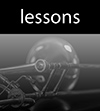Practice and the Law of Diminishing Returns, by Toby Oft
I’ve been thinking a lot about the art of practicing. As I watch my students and observe my own behavior in preparation for auditions and solos, I have noticed a certain law of diminishing returns that comes from practicing too much. If we agree that practice makes permanent, then we must take greater responsibility for our actions whenever we play the trombone and cultivate an easy process rather than a habit of exertion.
Both my dad and I have enjoyed running and cycling as a hobby throughout our lives. It is interesting to me to track the evolution of recommended training for athletes over the past 50 years. When my dad was in high school and college he ran the 800 meters in track and field. At track practice, his training was to simply run the 400 meters over and over until he and his teammates could not run another step. Variations on this theme abounded but suffice it to say, that it was a matter of pride to reach utter exhaustion at the end of every practice in the 1960’s.
When I was in high school things were only slightly different but in defense of my coaches, I believe some of my own expectations may have superseded the goals of our workouts. To me there was rarely such a thing as an easy run or a rest day. As a result I rarely finished a race with anything like a “kick” or even energy for a sprint to the finish since I had used all my energy in practice and the beginning and middle of the race already.
As I got into cycling in the last 5 years or so I came to know the heart rate monitor through books written by Lance Armstrong’s coach, Chris Carmichael. The heart rate monitor or HRM tracks how many beats per minute your heart is at any given moment of a workout. If used correctly, the HRM helps you keep track of exactly when your workout is past the point of healthy exertion or aerobic threshold. I suppose the best way to keep track of it yourself without one would be to maintain a conversation while running or cycling without sounding winded.
To avoid too many details, there is a point when exercising at increasingly rigorous levels where the red blood cells cannot deliver enough oxygen to the muscles to keep up with the demand for energy. The heart needs to pump ever faster and faster but it’s never enough so the body produces small amounts of adrenalin to maintain the necessary level of exercise. The byproduct of this anaerobic process (I know it’s more complicated, but I’m not a doctor) is lactic acid, which is what makes us sore the day after an over intense workout.
It gets worse. If you exercise like this every day, the adrenalin actually reduces the effectiveness of the muscle tissue by making it tight and brittle as opposed to supple and flexible (think frozen chicken rather than thawed). Although there is tremendous progress at the outset, most athletes who exercise in this manner experience a plateau in their improvement that can only be overcome with a good amount of rest.
The most destructive thing that over exertion accomplishes is a state of mind associated with the style of workout. Practice makes permanent such that regular workouts beyond your aerobic threshold means that every time your heart rate goes up, whether to run a 10k or up a flight of stairs, your heart wants to shoot past the aerobic threshold and into the anaerobic range. Essentially a person would get to a point that anything but extreme exercise would be relatively impossible because of the regular practice of supreme exertion to the heart and muscles. I am sure we have all seen colleagues who play in this manner and are unable to change their tone in the same way, e.g. pep band sound is different than Saint-Saëns No. 3.
In relation to practice, we can already draw several similarities to the anecdotes above. Some aspects of performance on the trombone require a certain amount of strength to accomplish like high range, loud playing etc. If we practice with high levels of physical exertion all the time then our mind begins to associate difficulty and unnecessary effort with the trombone that ultimately diminishes our confidence and general musical enjoyment. Moreover, this is easily observed in performance as an aggressive tone in the loud dynamics that cannot be tuned with and soft playing that is unclear and “grainy” (dirt in the sound) at best. Often flexibility suffers as well such that wide smooth slurs are basically impossible because the chops are so tight. Lastly, articulation suffers simply because the lips are just too tight to vibrate.
We can also observe similarities in the sheer amount of practice being good or bad. It is not always a good thing to practice in huge quantities every day. Think of it like the absurdity of training for a marathon by running two or three 26 mile races, full out every day. It can be a good thing to have an occasional 5 hour day, but never all at once and I would recommend each session be less than 45 minutes.
There is a point in every practice session where you find the law of diminishing returns such that more practice finds your buzz less and less efficient. If you observe this in your process, perhaps it would be good to reduce your volume and range for the short term. In addition, it has been very beneficial to me to remind my lips to vibrate smoothly by buzzing Bordogni etudes a phrase at a time: 3 times buzz, one time play all the way through the exercise. If you notice a “graininess” in the sound when you buzz, perhaps it would be a good idea to do some easy lip slurs and put the horn away for 24 hours.
For high range practice and loud playing remember to avoid absolute exhaustion. Keep it easy and you will actually be able to play higher, louder, and with a much prettier sound than if you hit the wall with any regularity. Realize that range and volume come first in small amounts and eventually you can make it all the way through Bolero or Tannhäuser and sound supple from beginning to end. Eat your sandwich one bite at a time and chew slowly – don’t put the whole sandwich in your mouth all at once and wonder why you choke every time! Your goal is to associate success with matters of range and volume, which will also make you more relaxed in a performance situation.
Your mind has a tendency to look to the past when you’re nervous so if you look back on a process of easy success you will be all the more likely to play well than if you create a history of exertion and failure. Remember that success is not in the sheer quantity of practice, but in the quality. Practice makes permanent (did I say that already?) so take special care to decide how you want to sound not once a week, but once a day. It is important to do this through listening to live masters of tone than recordings when you can. I mention this last point as a way to accomplish successful practice without the trombone because quite often we all are guilty of mindless practice with no direction – we’re just there to put time in. A clear sense of direction in your sound concept beats treading water every time.









